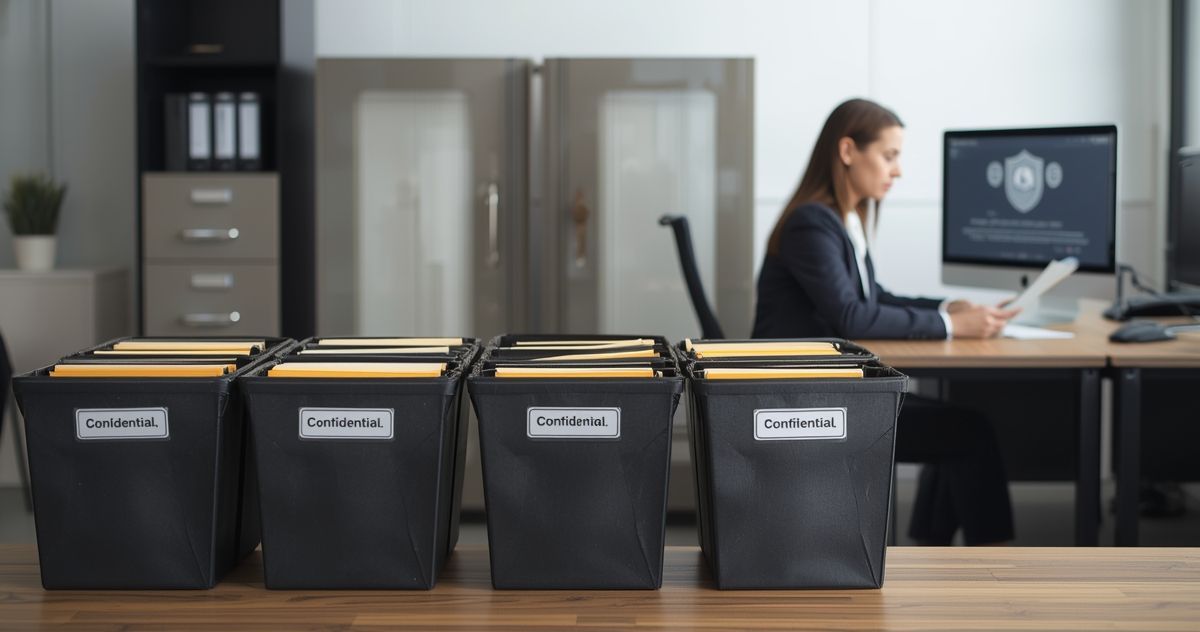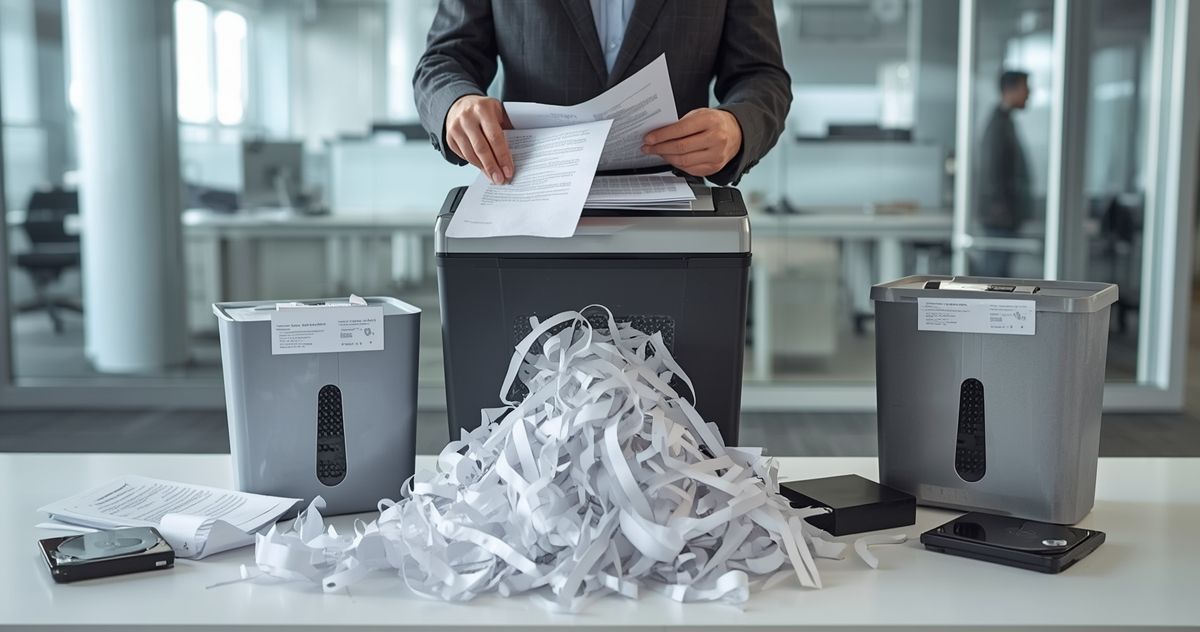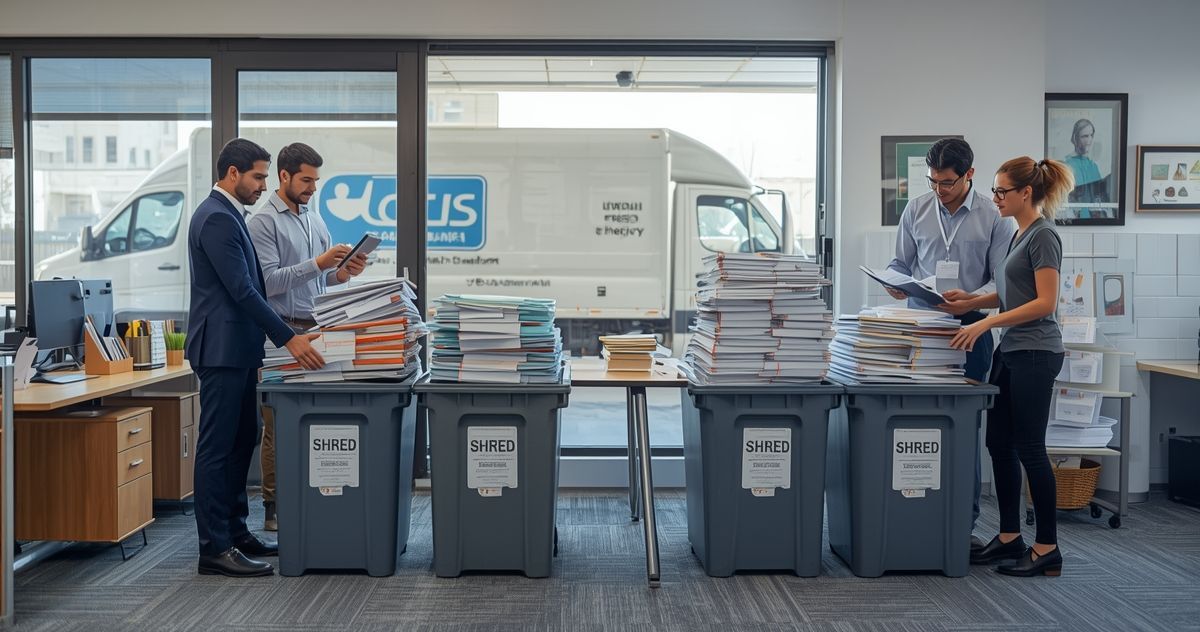Rethinking Paperless: Why Digital Transformation Still Needs Physical Data Destruction
Rethinking Paperless: Why Digital Transformation Still Needs Physical Data Destruction
Ensuring Security in a Digital World Means Safely Disposing of Sensitive Documents
Many organizations are embracing digital transformation with the promise of going “paperless.” Cloud storage, digital workflows, and electronic recordkeeping have reduced the need for physical files, yet the reality is that paperless does not mean “paper-free.” Sensitive documents still exist in physical form, and old files, contracts, and records often linger long after their usefulness. To fully protect data, businesses must consider physical data destruction as a critical part of their digital strategy.
The Myth of the Paperless Office
The idea of a completely paperless office has been around for decades, but even tech-forward companies find themselves surrounded by documents. According to a 2023 AIIM (Association for Information and Image Management) report, 50% of organizations still handle paper regularly, primarily for compliance, legal, or archival reasons.
While digital storage reduces clutter, it does not eliminate the risk of sensitive information exposure. Old client contracts, tax documents, and employee files stored in filing cabinets remain vulnerable to theft or accidental loss. Physical documents require a secure disposal process just as much as digital data does.
Why Physical Data Destruction Remains Crucial
Even with advanced digital systems, physical records are often unavoidable. When these materials are no longer needed, simple disposal is not enough. Here’s why:
- Preventing identity theft: Stolen personal or financial information can result in significant financial and reputational damage.
- Compliance with regulations: Laws such as HIPAA, FACTA, and GDPR require secure disposal of sensitive information.
- Mitigating internal risks: Employees, contractors, or visitors could access confidential information if it’s not properly destroyed.
According to the Identity Theft Resource Center, data breaches involving physical records still occur in thousands of cases each year, underscoring the need for trusted document destruction services.
How Digital Transformation and Shredding Work Together
A truly modern information management strategy combines digital efficiency with secure physical destruction. Businesses that integrate both approaches can reduce risk, streamline operations, and maintain compliance.
- Shred what you digitize: When paper records are scanned and stored digitally, the original documents should be securely destroyed.
- E-waste management: Digital transformation often means upgrading IT systems. Old hard drives, tapes, and electronic devices must be destroyed or recycled properly to prevent data recovery.
- Document retention policies: Align your digital archiving policies with physical destruction schedules to maintain consistency and compliance.
By taking these steps, companies ensure that digital progress does not create new vulnerabilities.
Benefits of Integrating Physical Destruction into Digital Workflows
Incorporating secure shredding and disposal into your digital strategy provides multiple advantages:
- Enhanced security: Physical records are eliminated before they can be compromised.
- Environmental responsibility: Partnering with eco-friendly shredding services ensures paper and electronics are recycled, supporting
green shredding initiatives.
- Regulatory compliance: Documentation and certificates of destruction provide evidence of adherence to legal standards.
- Operational efficiency: Reduces storage needs and clutter, making it easier to manage both digital and physical records.
Choosing the Right Data Destruction Partner
Not all shredding providers are equipped to support businesses undergoing digital transformation. When selecting a partner, consider:
- Certification and compliance: Look for NAID AAA-certified providers who follow strict security protocols.
- Recycling and sustainability practices: Ensure paper and electronic materials are processed responsibly.
- Flexible service options: On-site shredding offers convenience, while off-site shredding can handle larger volumes.
- Transparent reporting: Verified destruction and chain-of-custody tracking provide peace of mind.
These measures help businesses maintain the integrity of sensitive data while supporting environmental and operational goals.
Moving Beyond Paperless
Digital transformation is more than eliminating paper—it’s about optimizing information management across all formats. By including physical data destruction in your strategy, organizations can:
- Protect sensitive information from breaches or unauthorized access
- Reduce waste through responsible recycling and disposal
- Maintain compliance with industry regulations
- Build trust with clients and employees who value data security
The reality is that physical records will continue to exist alongside digital files for the foreseeable future. Recognizing this and acting accordingly is key to creating a truly secure and efficient information ecosystem.
Conclusion
Going paperless is an important step for any modern organization, but it is not the complete solution for data security. Physical documents and outdated electronic devices still pose a risk if not properly destroyed. Integrating secure document destruction into your digital transformation plan ensures sensitive information is protected, compliance is maintained, and environmental responsibility is considered.
Ensure your business is fully prepared for the digital era—while keeping sensitive data safe and sustainable. Learn more about reliable and eco-friendly
data destruction services at
Data Shredder Corporation by visiting our website.











Share On: